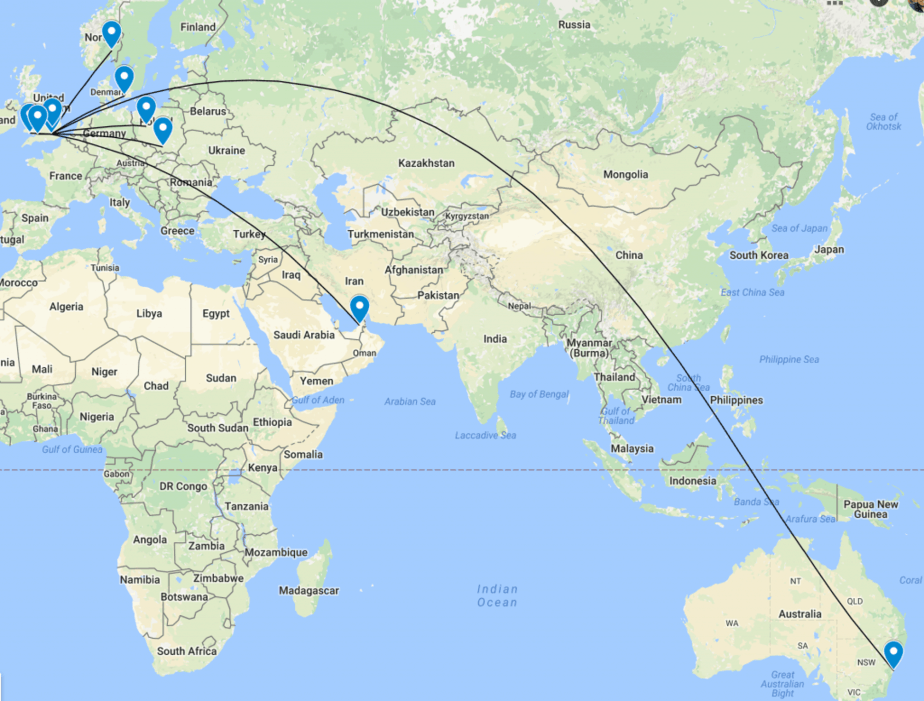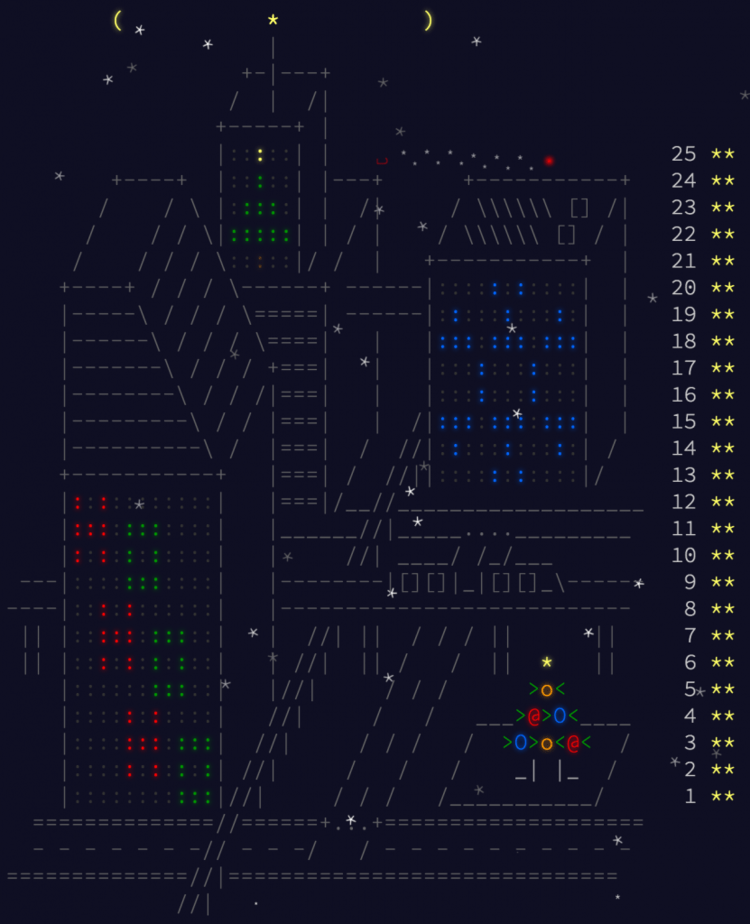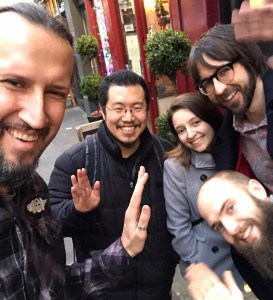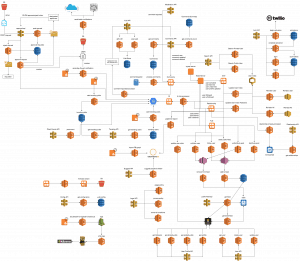
Yan Cui
I help clients go faster for less using serverless technologies.
Changes, Changes, Changes
On a personal front, 2016 has been a year of great highs and lows.
I left JUST EAT in March, and started working at Yubl where I had the pleasure of working with an amazing group of people and had lots of fun building things with AWS Lambda and Node.js. We took an ailing architecture that was hard to work with and difficult to release (and required downtime to release to production) and transformed it completely in the space of a few months.
The number of production releases went up by more than ten-fold, features were sometimes completed and released into production in a matter of hours. The product was starting to do well and featured by the App Store several times and ranked as high as 4th in the social category.
Then everything came to a crushing and disappointing end as funding issues and the reality of a startup reared its ugly head.
What followed was several weeks of job hunting, during which I learnt a lot:
- London has a vibrant tech scene and there are lots of interesting companies doing amazing things
- most companies are still weary of the new serverless paradigm, many are “interested” but few are taking the plunge
- DevOps is super hyped up (and in my opinion, completely misunderstood by most)
- many companies are buying tickets to the Containerization Train, even though the cheaper, faster and more reliable Serverless Express is right next to it
- the money available in the contract market is ridiculous
- there’s a wave of relatively new consultancy firms (EqualExperts, Contino, 101Ways, etc.) that are following the footsteps of ThoughtWorks and doing good things in the Enterprise Consultancy space
After much soul searching, I decided to follow my heart and go back to the games industry. As of tomorrow, I’ll be starting at Space Ape Games studio in Holborn and working with a Scala-based stack.

Learning and Sharing
I spoke at 19 conferences and user groups, delivering talks on a diverse range of topics : F#, Serverless, Neo4j, Elm and APL. I have learnt a lot along the way, and visited Dubai and Sydney for the first time and they were both memorable experiences.

I prepared and delivered some new talks this year:
- Building reactive systems with AWS Lambda
- AWS Lambda from the Trenches
- Fear and Loathing with APL
- Simplify localization with Design Pattern Automation
I took part in and completed all 25 Advent of Code challenges in F#.

Top Posts
- AWS Lambda – use recursive function to process SQS messages (part 1)
- AWS Lambda – use recursive function to process SQS messages (part 2)
- AWS Lambda – constant timeout when using Bluebird Promise
- AWS Lambda – janitor-lambda function to clean up old deployment packages
- Building a random arts bot in F#
- Ransom notes problem in F#
- Equilibrium index problem in F#
- Exercises in Programming Style – Map Reduce
See you in 2017
That’s it folks, happy new year! Wish you all a very productive 2017 ![]()
![]()
![]()
Whenever you’re ready, here are 3 ways I can help you:
- Production-Ready Serverless: Join 20+ AWS Heroes & Community Builders and 1000+ other students in levelling up your serverless game. This is your one-stop shop for quickly levelling up your serverless skills.
- I help clients launch product ideas, improve their development processes and upskill their teams. If you’d like to work together, then let’s get in touch.
- Join my community on Discord, ask questions, and join the discussion on all things AWS and Serverless.



Pingback: From F# to Scala – type inference | theburningmonk.com
most companies are still weary of the new serverless paradigm, many are “interested” but few are taking the plunge
Yeah, I think many companies are thinking, “We just figured out this containerization thing!” I think once more companies use it and figure it out and people blog about it, then it will start to spread.
It’s already picking up a lot of steam in 2016, I saw a lot of companies big and small starting to take advantage of it but it was mostly either, a) big company (eg. CapitalOne) experimenting with it in small projects, or b) small startups building entire platforms on it, but not much in the middle.
Tooling is constantly maturing and getting better, and Simon Wardley sums it up nicely about where we’re headed. https://twitter.com/swardley/status/799423318092824576
Everyone I have spoken who has worked with Lambda loves it, from developers to ops. And the containerization thing is not quite ‘figured out’ either, the container schedulers space is still very much in flux and we’re yet to reach a point where we have figured out a common set of features that everyone needs and the market becomes commoditized. From my circle, the typical containerization moves I have heard about took anywhere from 4-18 months to go from conception to production, which is a really slow feedback loop, you’re much better off to skip it altogether to go straight to serverless :-P